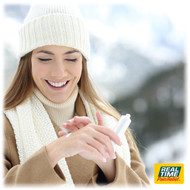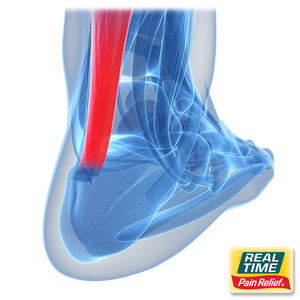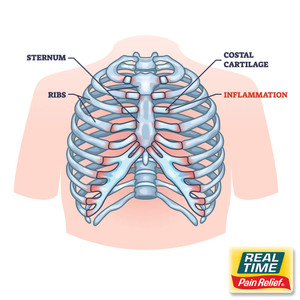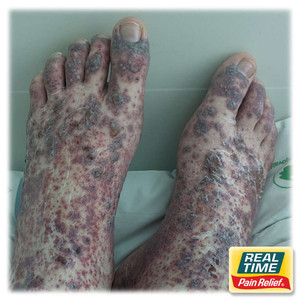8 Winter Skincare Secrets
23rd Feb 2022
Winter is upon us. Since our skin must adapt to the cold environment, it is time to develop a winter skincare routine.
The cold of winter tends to be super dry, wicking all the moisture from the air and our skin. Plus, the heaters we use indoors are incredibly drying for our skin.
These factors taken together can lead to dry, flaky skin, chapped or even cracked lips, windburn, and peeling nails and cuticles.
With some minor adjustments to your winter skincare routine you can accommodate for the change in season. This can help you protect and nourish your skin to be sure it is soft, supple and radiant year round. Here are some winter skincare secrets to support your skin through the winter months to ensure it stays healthy and happy!
8 Winter Skincare Secrets
#1) Re-Think Your Shower Routine!
Switching up your shower routine can actually make a massive difference in your skin health. Of course, hot showers and baths are especially comforting in the dark winter months. Sadly, water is rather dehydrating for the skin—hot showers especially. Baths are a bit better because you are soaking in the waters instead of letting the water continuously stream down your body carrying the oils away.
Basically, hot water strips the skin of natural oils and healthy bacteria. The skin naturally produces oils to protect it from the outside world and to keep it flexible, youthful, and vibrant. Hot water melts oils off of the skin (just the way it does when you’re washing greasy dishes!) and then as you dry, the water evaporates leaving your skin tight and brittle.
In addition to stripping the skin of its natural and essential oils, hot water also damages the bacteria naturally found on the skin. The skin is host to a wealth of healthy bacteria which act to support the skin’s immune system. They help protect against toxins, chemicals, and unhealthy bacteria.
Some things you can try to shift your shower routine include:
- Don’t Shower as Frequently & Keep It Short!
It’s frankly not necessary to shower as often as is perhaps the cultural norm. Frequent showering will strip the skin again and again…and again.
What happens then is either your skin will try to compensate for the oil stripping by over-producing oils, which can lead to oily skin. Or, alternatively, you can wind up with super dry, flaking skin. Neither option is very nice.
Obviously, if you are going to the gym every day (good for you!) and sweating a ton, you probably want to shower. In that case, try to keep it to a minimum time wise—just 5 to 10 minutes to rinse off is plenty—and go easy on the soap, which is also oil and bacteria stripping.
The idea is to work with the skin. So don’t give it more work to do!
- Oil Your Skin Before You Shower
This sounds weird to a lot of people: “Oil my body before I shower? Isn’t that counter-intuitive?”
Not really. And here’s why: When you oil your body before you shower, you create a barrier between your skin and the water to prevent it from becoming dehydrated. Then, when you get in the hot water and your pores open up, the oil will be the first thing your skin absorbs—not the drying water.
Oil is cleansing and will dissolve any hardened oils and grime in your pores, and the hot steam will drive the oil to penetrate your skin, nourishing you on a deep level.
It may sound weird but just give a try. You’ll be amazed by how soft, clean, and luxe you feel when you get out of the shower.
- Moisturize Your Skin While It’s Still Wet
If you really can’t get used to the idea of pre-shower oiling, the next best option—or one you can use in conjunction with pre-oiling—is to moisturize immediately after you get out of the shower, before drying.
When you get out of the shower, your skin is full of water. By moisturizing immediately you will lock that water in leaving you hydrated and glowing.
#2) Switch Up Your Face Washing Routine
As with showering, there are few basic changes you can make to your face-washing regime to prevent over-drying.
- Don’t Over-Wash!
As with all of your body, be careful about over washing your face. Soap can be extremely harsh, stripping the skin of natural oils. Try to find a gentle, non-soap based face wash. You could even look into the oil cleansing method in which you use oil to dissolve the dirt on your face followed by a hot washcloth.
- Use Luke Warm Water
As mentioned above, hot water is extremely stripping for the skin. Instead, wash with lukewarm water.
- Don’t Over-Exfoliate!
Exfoliating is ok once in a while to help remove dead skin cells. But exfoliating can also be drying to the skin, especially in an already dry environment such as the desert or during the dead of winter. Over-exfoliating can even lead to acne.
#3) Find a Good Face Lotion
It almost goes without saying that you definitely need a really lovely and luxuriant face lotion.
Actually, you will probably want two moisturizers—a lighter one for the day and a thicker more rejuvenating one for the nights. In general, look for oil-based moisturizers, since they will help your skin retain moisture better than a water based one in the winter months.
For your day lotion, you’ll want something that is light and nourishing, and gives your skin a healthy boost for the whole day. For your night cream, play around until you find something that leaves you feeling positively supple when you wake from your beauty sleep.
You’ll also want to put on SPF, since the sun in the winter can be surprisingly sharp—particularly if you are around super reflective snow.
#4) Find a Good Lip Balm
Lip skin is much thinner than skin found on other parts of your face and they also lack sebaceous glands, which produce oil. As such, the delicate lips require special love and attention to keep them moist through the winter months.
You’ll want lip balms made with rich oils like coconut oil and shea butter since they will be both deeply moisturizing and offer a layer of protection from the biting winds. Beeswax is another ingredient that really creates a barrier against the outside world and your delicate lips.
Be sure to use some SPF during the day if you’ll be outside a lot since the sun can really damage the thin lip skin.
And if you already have super dry lips, try not to lick them too much! When the moisture from your saliva evaporates it leaves your lips even dryer. Instead, apply and reapply a nice lip balm infused with ingredients from nature to counteract the excessive dryness and any cracks already present. Be sure to apply a rich balm at night as well to rejuvenate those smackers while you sleep!
#5) Take Extra Care of Your Hands
Hands can become especially dry in the winter because the skin is thinner and dehydrates more readily than other parts of your body. Counteract this by wearing gloves or mittens outside and dishwashing gloves when you do the dishes.
Use thick creams and butters to moisturize. If your hands are already cracked and peeling, you can apply a thick cream and then wear wool socks or mittens over your hands while you sleep to be sure the oils really penetrate.
For your nails, which can become brittle in the winter, applying a protective nail polish can help prevent them from drying and cracking. You’ll also want to find a nourishing cuticle cream, oil, or botanical jelly to keep your fingers healthy and looking beautiful.
#6) Eat Lots of Oils and Fats
The best way to keep yourself looking radiant is from the inside out. Make sure you’re tending to your diet, eating lots of whole foods, and getting a full range of nutrition. And, of course, make sure you’re consuming your oils! Oils are the primary thing that will keep your skin supple and glowing. And the best way to feed your skin is actually from the inside. Eating lots of healthy oils and fats will make you glow from the inside out.
#7) Hydrate!
It may seem obvious, but it can be harder to remember to drink water in the winter months since you aren’t melting in the sun every day. Don’t forget! Drink plenty of water and be sure you’re getting your electrolytes too.
#8) Adjust Your Indoor Environment to Prevent Dryness
In addition to a dryer outer environment, indoor spaces usually pump heat throughout the winter to compensate for the cold. The only problem is that heaters are super drying for the skin as well.
Counteract this by turning down the heat at night while you’re sleeping—get cozy under a pile of blankets instead! You can also add a humidifier to your space in order to pump moisture back into the environment.
Hopefully these winter skincare secrets will have you glowing through the winter months!
Pain Relief You Can Trust® Since 1998
For over 20 years, families across the U.S. have turned to Real Time’s lotions and creams for PAIN RELIEF YOU CAN TRUST®. From Lifestyle Essentials, through our Nujuvena line, to Pain Relief Formulas, Real Time has you covered. LEARN MORE





